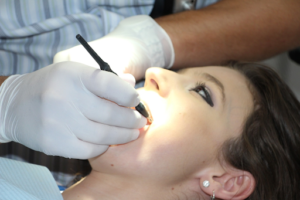Taking care of your teeth is essential not only for maintaining a bright smile but also for ensuring overall health. Neglecting oral hygiene can lead to a range of issues, from cavities and gum disease to more serious health complications. In this blog, we will explore seven crucial dental tips that will help you establish a robust oral care routine. Whether you’re aiming to prevent tooth decay or simply enhance your dental hygiene, these straightforward strategies will empower you to keep your teeth healthy and strong for years to come. Let’s dive into these practical tips that can make a significant difference in your oral health journey!
Find A Local Dentist You Can Trust
Choosing a trustworthy dentist is a vital step in your oral care journey. Start by researching local dental practices that have positive reviews and testimonials. Recommendations from family, friends, or colleagues can provide valuable insights into the quality of care you can expect. Whether you need a dentist in Edmonton or Sante Fe, ensure that they have the necessary qualifications and experience. A reliable dentist will not only provide you with regular check-ups and cleanings but also offer advice on maintaining good oral health.
Brush Twice a Day
Brushing your teeth twice a day is one of the simplest yet most effective steps in maintaining oral health. Ideally, you should brush your teeth in the morning after breakfast and again before bedtime. This practice helps remove food particles and plaque that accumulate throughout the day, preventing cavities and gum disease. When brushing, use a soft-bristled toothbrush and fluoride toothpaste to protect your enamel and promote strong teeth.
Floss Daily
Flossing daily is an essential component of a comprehensive dental care routine. Despite its importance, many people often overlook this crucial step. Flossing helps remove food particles and plaque from between your teeth and below the gumline, where your toothbrush might not reach. By regularly flossing, you can significantly reduce the risk of cavities and gum disease. It’s recommended to use about 18 inches of dental floss, wrapping it around your fingers for better grip and control. Gently slide the floss between your teeth in a C-shape motion, taking care not to snap it against your gums. Incorporating daily flossing into your routine can lead to healthier gums and a brighter smile.
Limit Sugary Foods and Drinks
Reducing your intake of sugary foods and beverages is crucial for maintaining healthy teeth. Sugar is a primary contributor to tooth decay, as it fuels the bacteria in your mouth that produce acid, leading to cavities. To protect your dental health, aim to limit the consumption of sugary snacks, sodas, and desserts. Instead, opt for healthier alternatives such as fruits, vegetables, and whole grains that not only support your overall health but are also less harmful to your teeth. If you do indulge in something sweet, make sure to rinse your mouth with water afterward and brush your teeth after a reasonable interval.
Regular Dental Check-Ups
Scheduling regular dental check-ups is a critical aspect of maintaining optimal oral health. These routine appointments typically include professional cleaning and thorough examinations to identify any potential issues before they escalate. Visiting your dentist every six months allows for early detection of cavities, gum disease, and other dental problems, ensuring that necessary treatments can be administered promptly. Dental professionals can provide personalized advice tailored to your specific needs, helping you to refine your oral care routine. Taking this proactive approach not only helps preserve your smile but also supports your overall health by preventing more serious complications that may arise from neglect.

Use Mouthwash
Incorporating mouthwash into your oral hygiene routine can provide an extra layer of protection for your teeth and gums. Mouthwash helps to reduce plaque buildup, freshen breath, and reach areas that brushing and flossing may miss. Look for an antiseptic mouthwash that kills bacteria or one containing fluoride for added enamel protection. Using mouthwash after brushing and flossing can help rinse away any lingering particles in your mouth and contribute to overall oral health. Aim to swish the mouthwash for 30 seconds to a minute, ensuring you don’t eat or drink anything for at least 30 minutes afterward to allow the active ingredients to work effectively.
Consider Dental Sealants
Dental sealants are a preventative measure that can be highly effective in protecting your teeth from cavities, especially in children and teenagers. These thin, protective coatings are put to the rear teeth’s chewing surfaces, which are the most susceptible to decay. The process is quick and painless, as a dental professional will first clean and dry the tooth before applying the sealant. Once cured, sealants provide a smooth surface that helps keep food particles and plaque from settling in the grooves and pits of your teeth. While they are not a substitute for regular brushing and flossing, dental sealants can significantly reduce the risk of decay and support a lifetime of healthy teeth.
Maintaining proper dental hygiene is essential for not only preserving your smile but also promoting your overall well-being. By following these seven dental tips—finding a trustworthy dentist, brushing and flossing regularly, limiting sugary foods and drinks, scheduling check-ups, using mouthwash, and considering dental sealants—you can establish a comprehensive care routine that supports healthy teeth and gums. Remember, a proactive approach to oral health can prevent complications in the future, allowing you to enjoy a lifetime of confident smiles and improved health. Take these steps seriously, and empower yourself to prioritize your dental care for a brighter, healthier tomorrow.



